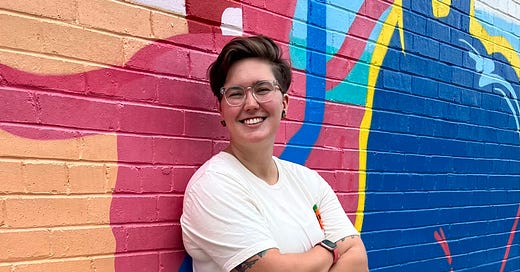What is your current job?
I’m the health reporter for KERA News, the NPR affiliate station of North Texas.
What was your first byline?
My first byline was for The Vermilion, the University of Louisiana at Lafayette’s student paper. The editors at the time took a chance on a freshman who had not even started classes. My first assignment was to cover an original theater production. Let’s just say that the first draft I turned in definitely reflected my inexperience.
The story itself was nothing special, but the motivation I had to improve stuck with me. I studied edits, asked for more assignments and learned as much as I could about different parts of newspaper production and multimedia. By my senior year, I had served as a web editor, copy editor, designer and managing editor. I’ll be forever indebted to the Vermilion staffers who helped mold me.
For the next two weeks, you can subscribe to Your First Byline for a 50% discount. Subscribers get full access to our archives of advice from more than 220 journalists.
What was your first real job in journalism?
My first real job was covering Arlington, Tex., for the Fort Worth Star-Telegram. Officially, I covered the city council. However, in a town where I was the only full-time reporter dedicated to a city without a daily news organization, I covered crime, education and sports along the way.
How did you get it?
I was first hired at the paper through Report for America in 2020. The fellowship program places early- to mid-career journalists in newsrooms across the country and helps organizations with funding for up to three years. I’m thankful that I applied and that RFA connected me to my first job, especially during the first few months of the pandemic. I had applied for a wide range of jobs across the U.S., but my heart was set on a couple beats, including city council. The fellowship also helped me jump to my second-ish job, which was to report on Arlington for KERA. I was lucky to have been on the beat for four years across two organizations.
What advice do you have for people looking to break into journalism?
Build expertise in something outside of journalism. I earned my master’s and bachelor’s in mass communication. There’s endless debate about whether journalism graduate school is worthwhile. I found my master’s program at the Cronkite School of Journalism and Mass Communication worthwhile. My undergraduate mass communication program did not have a lot to offer in its journalism sequence. However, I repeated many of the same courses I took in undergrad and found myself wishing I could have spent my undergraduate years studying anything else while reporting for the student newspaper and interning at different publications. If you do not want to major in a different field, learn a second language, read up on topics that interest you or find a hobby you enjoy.




